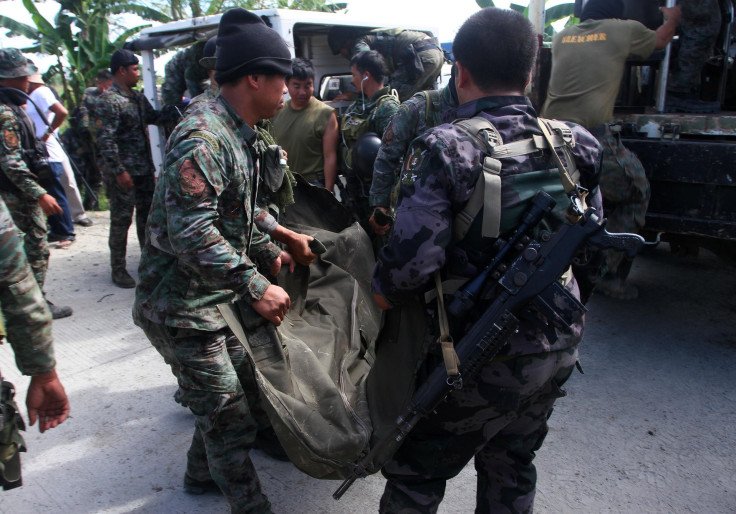Philippines Police Say 43 Commandos Killed In Clashes With Muslim Rebels

Philippines police said Monday that at least 43 commandos were killed in fierce clashes with Muslim rebels in the country’s south on Sunday while hunting for a terrorist on the FBI's most-wanted list.
According to General Leonardo Espina, deputy director of the nation's police force, one commando was missing after the conflict while 11 others were severely wounded in the fight, which took place in the remote village of Mamasapano in the Philippines’ Maguindanao province, The Associated Press (AP) reported. According to an Agence France-Presse report, the bodies of 49 police officers were recovered from the area. Separatist movements in the country's Muslim-dominated south have long sought to secede from the mainly Catholic nation.
The commandos arrived at the village early on Sunday in an attempt to capture Malaysian bomb-maker and Jemaah Islamiyah leader Zulkifli bin Hir, known as Marwan, who was believed to have been hiding in the area for years. Listed as a most-wanted terrorist by the FBI, Zulkifli has a $5 million bounty on his head. In 2012, the Philippines military reportedly claimed to have killed Zulkifli during a security operation, but it admitted last year that he was still alive, the Wall Street Journal reported.
According to the Philippines’ Interior Secretary Manuel Roxas II, it was “highly likely” that Zulkifli had been killed in the raid that claimed the lives of the police commandos, the Journal reported, adding that a total of 392 officers were involved in the battle with Muslim guerrillas.
“It’s unfortunate that people died on both sides, when it could have been prevented. We need coordination so that we can deploy our forces away from the areas affected by the operation – we’ve done this many times before,” the Journal quoted Mohager Iqbal, chief negotiator for the Moro Islamic Liberation Front, with which the government recently signed a peace agreement, as saying.
© Copyright IBTimes 2025. All rights reserved.






















